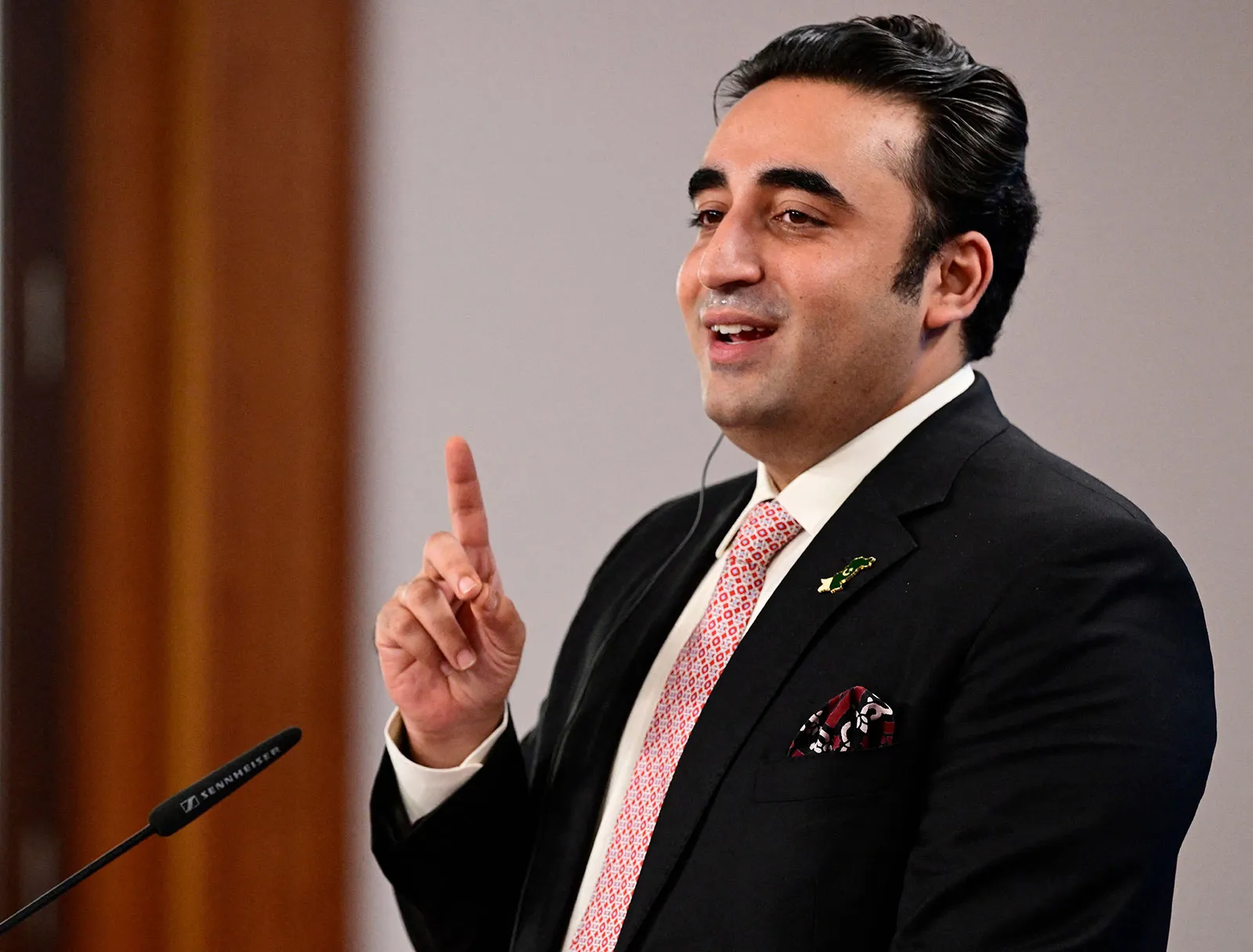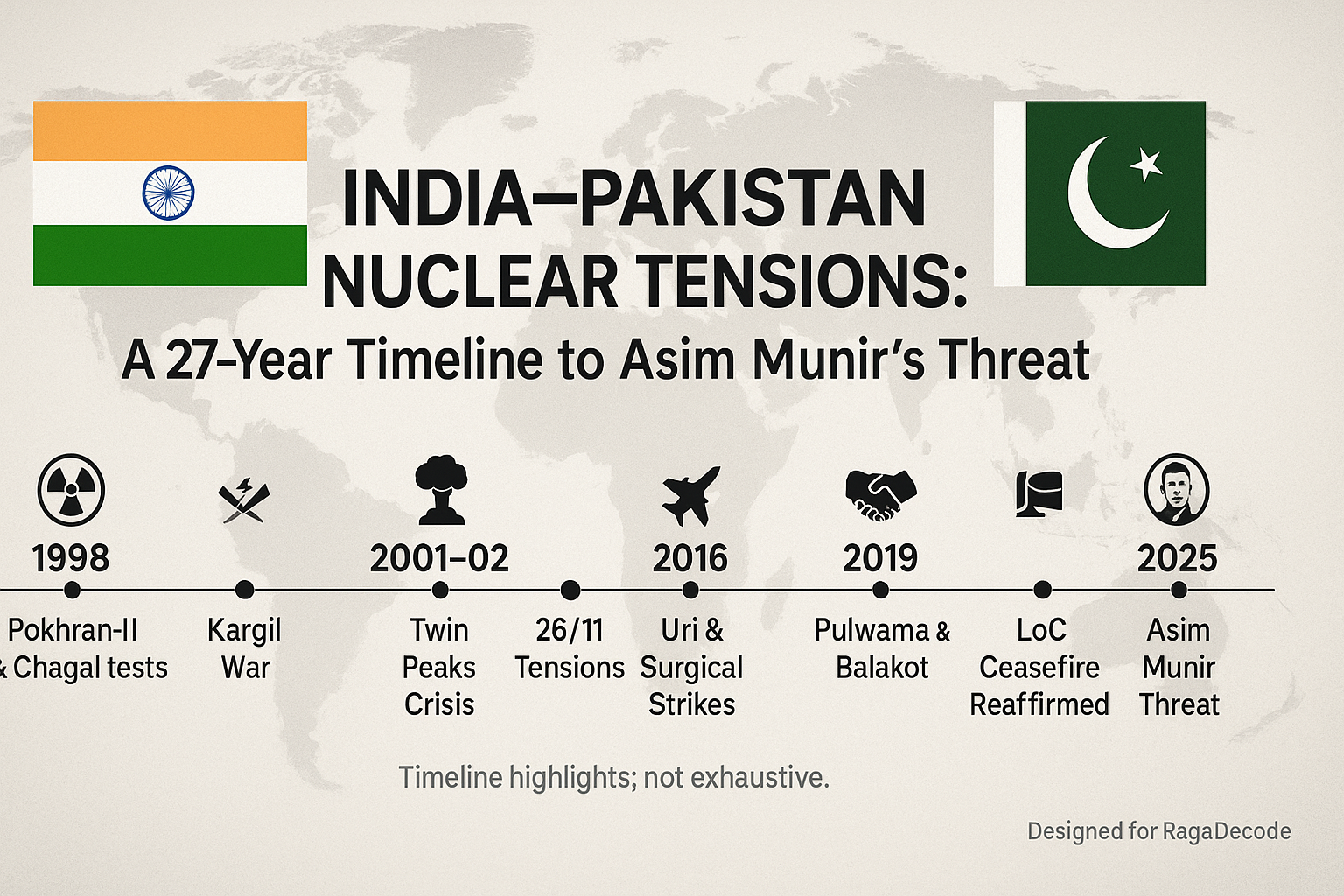In a move that has shocked political and diplomatic circles across the globe, Pakistan’s Army Chief, Field Marshal Asim Munir, issued an explicit nuclear threat against India while speaking on United States soil. The statement has raised not only bilateral tensions between India and Pakistan but also concerns over global nuclear stability.
Who Said It and Where
The comments were made by Field Marshal Asim Munir, Pakistan’s most powerful military leader, during a private gathering of the Pakistani diaspora in the United States. The event, reportedly held under Chatham House rules, was a formal black-tie meeting where attendees were asked not to record the conversation. However, details quickly leaked to the media.
What Was Said
Munir declared that if Pakistan faced an “existential threat” from India, it would “take half the world down” with it using nuclear weapons. He further claimed Pakistan has “no shortage of missiles” and threatened to target Indian infrastructure, including dams on the Indus River, arguing that the river was “not India’s property.”
In an unusual and provocative analogy, Munir compared India to a Mercedes speeding like a Ferrari and Pakistan to a gravel-filled dump truck, implying that in a crash, India would suffer more damage. He also made personal references to prominent Indian industrialist Mukesh Ambani, suggesting he could be a target in a future conflict.
When and Why This Matters
The comments came just days after the Pulwama-like “Palgam” terror attack in India’s Jammu and Kashmir region, an attack India links to Pakistan-based terrorist networks. The timing has amplified fears that such statements could inflame tensions and encourage further violence.
By making these threats from American soil a country traditionally considered friendly to both India and Pakistan Munir has raised questions about the role of the United States in allowing such rhetoric to go unchallenged.
India’s Response
India’s Ministry of External Affairs (MEA) swiftly condemned the remarks, calling them “reckless, dangerous, and globally destabilizing.” Officials stressed that Pakistan has a long history of using nuclear threats as part of its political and military playbook.
New Delhi accused Pakistan of “misusing the soil of a friendly nation” to issue threats and warned that such statements should alarm the international community, given the risk that Pakistan’s nuclear weapons could fall into the hands of military-linked extremist groups.
India reiterated that it will not be intimidated by “nuclear blackmail” and will take “all necessary steps” to safeguard its national security.
The US Position Silence So Far
The United States government has not yet issued an official statement on Munir’s remarks. This silence has been noted by both Indian officials and international analysts, especially given Washington’s stated commitment to preventing nuclear escalation in South Asia.
Observers say the lack of response could be due to diplomatic sensitivity, US–Pakistan military ties, or ongoing geopolitical calculations involving China. However, critics argue that ignoring such threats risks normalizing dangerous rhetoric.
Pakistan’s Political-Military Context
Unlike in India, where the military is firmly under civilian control, Pakistan’s army wields significant political influence. Historically, Pakistani military leaders have played key roles in shaping foreign policy, especially towards India.
Munir’s speech appears to be part of a long-standing strategy: using aggressive statements to rally domestic support, intimidate India, and maintain Pakistan’s strategic relevance to global powers. Analysts note that whenever Pakistan’s economic or political stability is under pressure, such rhetoric tends to escalate.
Why This Is a Global Issue
While the India–Pakistan rivalry is decades old, Munir’s statement explicitly framed the threat as global, saying Pakistan would not hesitate to harm other countries in the event of a war with India.
This declaration, made in the world’s most heavily armed nuclear region, has serious implications for global security. Experts warn that any nuclear exchange between India and Pakistan could have catastrophic humanitarian and environmental consequences, with fallout spreading far beyond South Asia.
How the International Community Could Respond
Diplomatic experts suggest that the United Nations Security Council and major powers should publicly condemn nuclear threats, regardless of who makes them. Stronger safeguards, stricter nuclear protocols, and diplomatic engagement between India and Pakistan could help reduce the risk of miscalculation.
However, such measures require political will something that has often been lacking in international diplomacy regarding South Asia.
India’s Military Confidence
In the backdrop of “Operation Sindhur” a recent successful cross-border strike targeting Pakistani military and terror infrastructure Indian officials have expressed confidence in their ability to neutralize threats. Past operations, including deep strikes on Pakistan’s air bases and sensitive military installations, have demonstrated India’s reach and capability.
New Delhi believes that by showcasing military readiness, it can deter Pakistan from escalating further. Still, analysts caution that nuclear threats, even if intended as bluster, must be taken seriously.
The Big Questions Ahead
The incident leaves several pressing questions unanswered:
- Will the United States break its silence and address the fact that such a threat was made on its soil?
- Can global diplomacy effectively pressure Pakistan to avoid nuclear brinkmanship?
- Will this lead to new security measures between India and Pakistan, or will it fuel an arms race?
As one senior Indian official put it, “This is not just about India anymore. When someone says they will take half the world down, the whole world should pay attention.”




